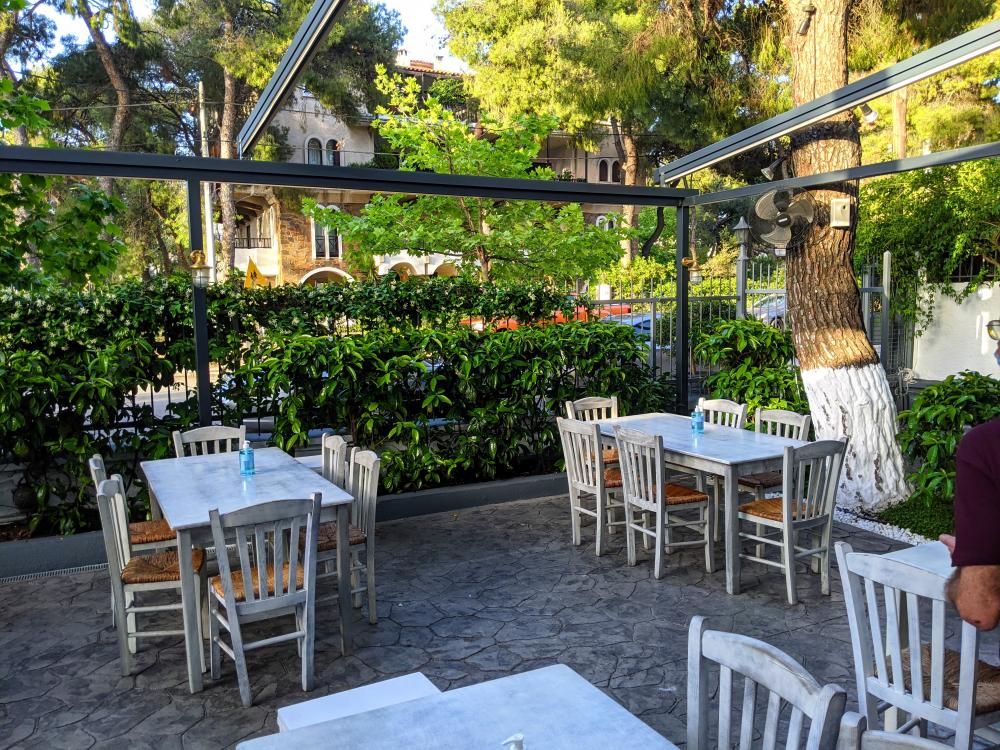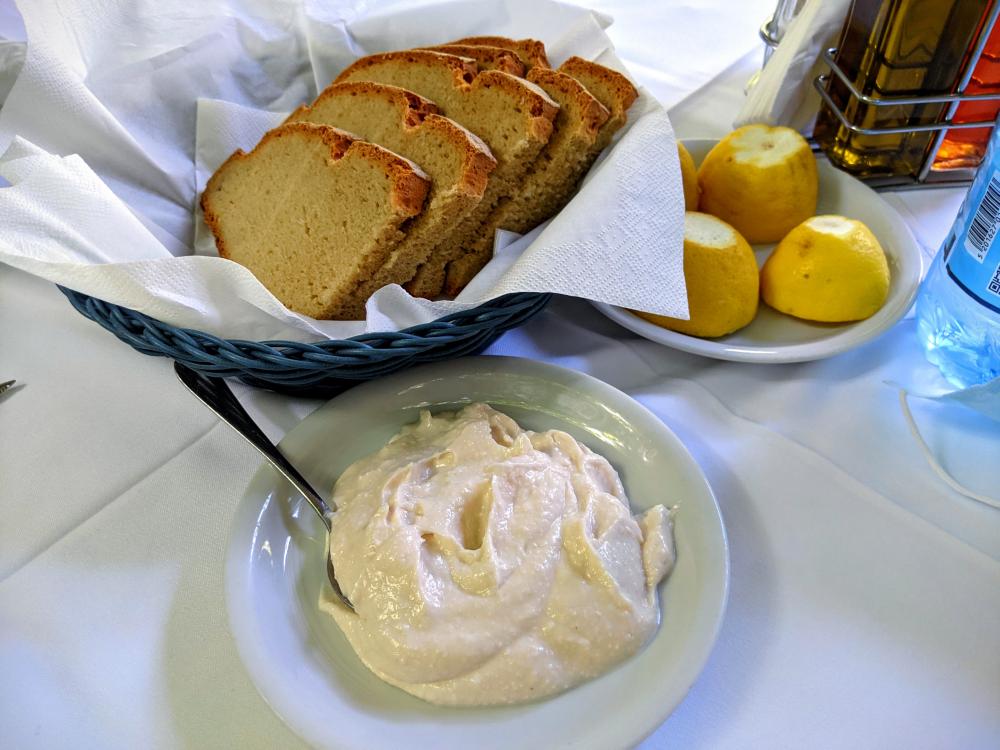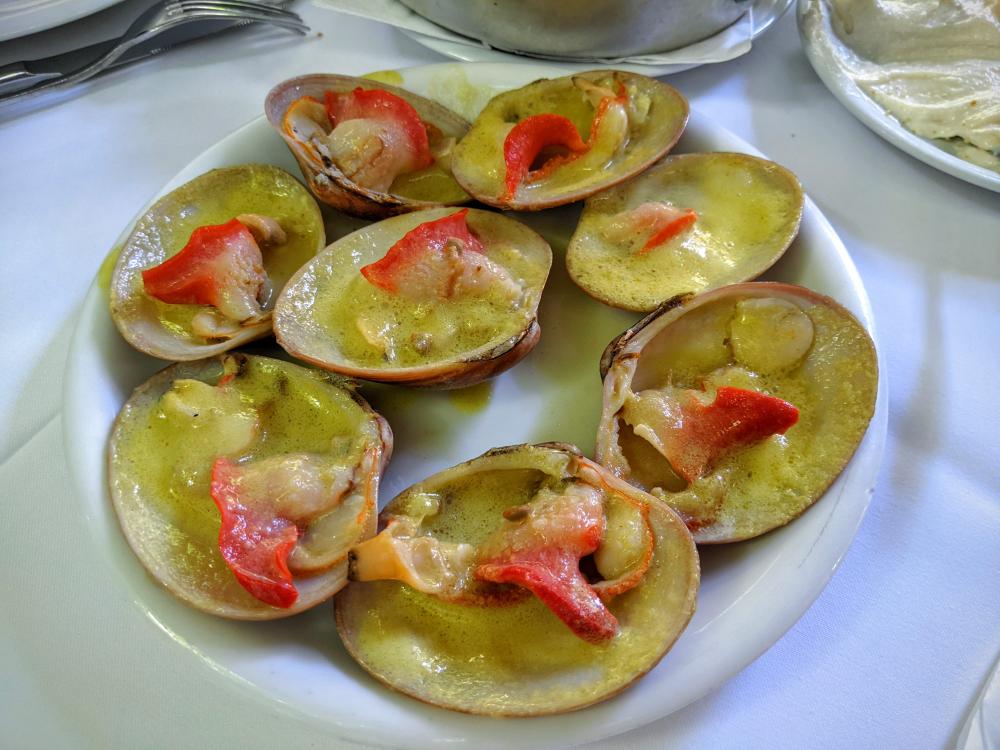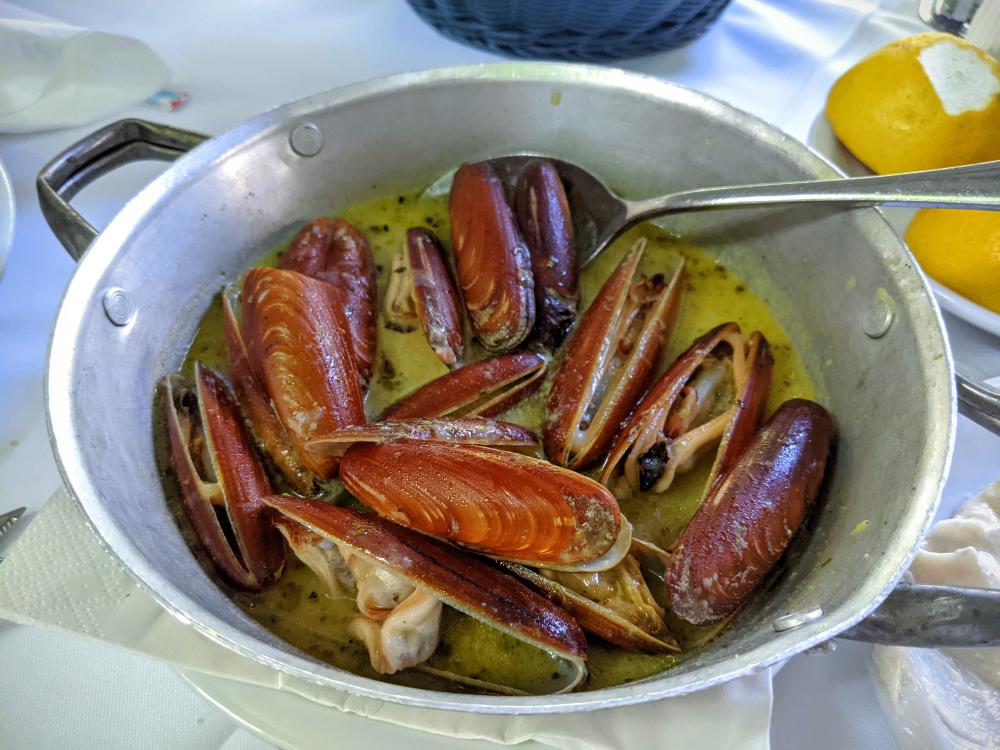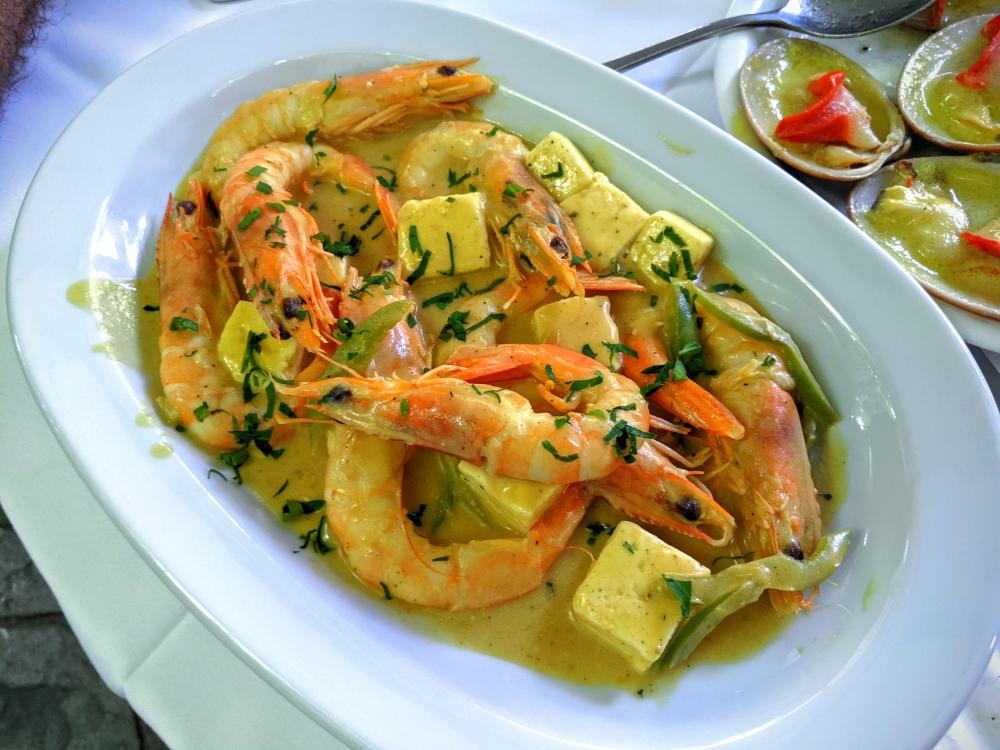As for entering Greece, there were a few forms to fill, no tests are needed for those vaccinated.
The airport and flight went smoothly. No meal is served, only water, not that I care, it's just a 1:45 hours long flight to Athens.
Landing at the afternoon at Athens, I was randomly chosen to be tested (because of course I do...). It was very quick and left me sneezing for a couple of minutes, but we got to bypass the passport check line ![]()
We got our rental car and started a ~4 hours long drive to Pelion.
First stop was for food, obviously. At a quite neighborhood at the outskirt of Athens, chosen as to minimize the detour time as well as for great reviews.
A nice yard, with more people than you'd expect given the location and time of day. During our trip, it was easy to see that restaurants and cafes are integral to the Greek culture. At all times of day, you can find locals sitting at restaurants with friends or families, having a coffee (a cold one), a snack with drinks or a meal. Many restaurants are family owned and the older generation will often sit there while the younger one cooks / serves, or sometimes do the cooking or part of it.
Covid ruled require restaurants to only sit guests outside, but that's not an issue with the current weather. They are also required to close at midnight, which might seem late for some, but it seems most locals have their dinner at around 10PM, with most restaurants normally open up to 1AM or even 2, pubs and cafes often later. Bottles of sanitizer are placed on every table, or at least in the entrance.
The lack of tourists is also notable, while most restaurants opened up, they are often quite sparse (other than the very popular ones) with dinners mostly being locals or Greek tourists. They might to be compensating for the recent closure period, but as I said, I think restaurant culture is very ingrained.
Much like in Italy, bread is served with any meal, and is often a sort of cover charge (though quite a fair one). However, unlike Italy, the bread served feels less like an after thought (in Italy, I was often served stale or tasteless bread). Bread served in Greek restaurants is often wholemeal/rustic, sometimes toasted or grilled, if it's plain than it will usually at least be fresh.
We were served taramasalata "on the house", a dish I don't usually eat (my line of vegetarianism passes between seafood and fish - i.e. I don't eat fish, but I eat most seafood other than octopuses). I sampled some, and it tasted mostly like mayo with a hint of fish. The bread was nice.
Then we received the main dishes:
Grilled clams with garlic sauce, a bit too chewy and the mustard was quite dominant, but still tasty enough.
Razor clams with lots of garlic and oregano - much better, though still a bit too aggressive with the spice.
Lemon shrimp saganaki - shrimps in creamy lemon sauce, with some garlic, peppers and a cheese I cannot recall the name of but tasted a bit brainy and a bit funky-hay like, with a softer texture than feta. That was a very fine dish, unlike with clams, I don;t mind shrimp flavor being overtaken by other ingredients. BTW, "saganaki" refers to a serving vessel with two handles, in which food is cooked directly and often served in. So there are many saganki dishes, the most common being shrimps, eggplant (cooked in sauce with cheese) and also feta and other cheeses, which is simply fried cheese (not usually served in a saganaki).
Two cups of good espresso to keep us going.
You may notice with later posts that seafood is quite prominent on our plates. This is because A) unlike meat it's something both me and my father enjoy, B) fresh seafood (other than fish) is not usually available in Israel ![]()
Parámalo, Kifisia, Greece. A decent meal, but I can't recommend it over other restaurants in Athens.

